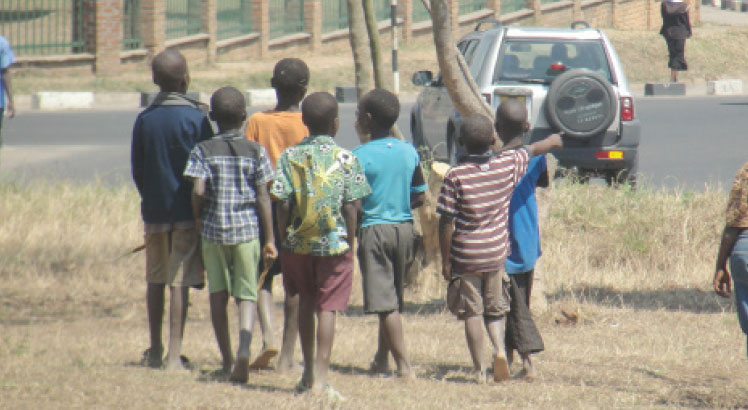Police, street kids and crime
Streets kids have become a real menace in Blantyre’s central business district (CBD) and residential areas. They have been unleashing terror and brutality in broad day light and night and with wanton abandon causing loss of lives, injuries and property. They break into cars and steal laptops and any valuable items they find. They snatch cellphones, hand bags et cetera from pedestrians.
They have been perpetrating this terror not just in the past few days, or weeks, but for months, if not years.

The most recent incident of their terror and brutality is a Mubas student who has been battling for his life after they attacked him on Monday in Chichiri. After reducing him to pulp, they stripped him of all valuables which included a laptop, cellphone and an unknown amount of money.
The incident like many others before it was duly reported to police. But if you ask them if they are zeroing in on the culprits, they always have one answer. They are investigating.
How difficult is it for our law-enforcers in Blantyre to round up them up and flash them out of the streets once and for all? It is not like they are a humongous mass and physical force that they cannot be herded out of the streets with just a few members of the men and women in uniform. At best, during the day, the street kids who usually move in groups of two, three or more are armed with pocket knives. At night, their reinforced armoury will include panga knifes. They fear no one. But armed with guns, the law-enforcers are many times superior to the street kids.
What then makes it difficult for the police to stop this anarchy?
There are several schools of thought about the matter. One is that the street kids are fronts of law-enforcers. That the forces behind them are the same people that everyone looks up to, to fight the crime. According to this school of thought, whatever the street boys steal from their victims, is handed over to their police bosses who then pay a percentage of the loot to the street boys to go and bring more of the same. The street kids are therefore protected.
There is some merit in this line of thinking. Otherwise how else would you explain why against all the talk about their unwanted presence in the streets, they have found the place their permanent enclaves or migodi in local parlance?
The second school of thought, like the first one, is that the street kids are fronts of some mafias groups in town. These are not necessarily the police but some civilians who could, however, be connected to the law-enforcers. The remuneration system is the same. They get a percentage of the loot. The bigger the heist, the more handsomely they are remunerated. The street boys are also protected because the police are either friends of or powerless against the mafia.
The third school of thought is a hybrid system whereby the mafias operate as middlemen and are the link between the street boys and the law-enforcers.
In all cases, the street kids are the untouchables. They can engage in all manner of mischief and misdemeanor, but no one will touch them. They can be apprehended for a felony in the morning and released in the afternoon.
All the scenarios discussed here make crime-busting in Blantyre’s CBD a mockery. The police have a good reputation of busting highly complicated crime syndicates in the city. We can conclude without fear of contradiction that the only reason they do not want to flash the street kids out of the pavements is because some of them are compromised. They are beneficiaries of the system.



